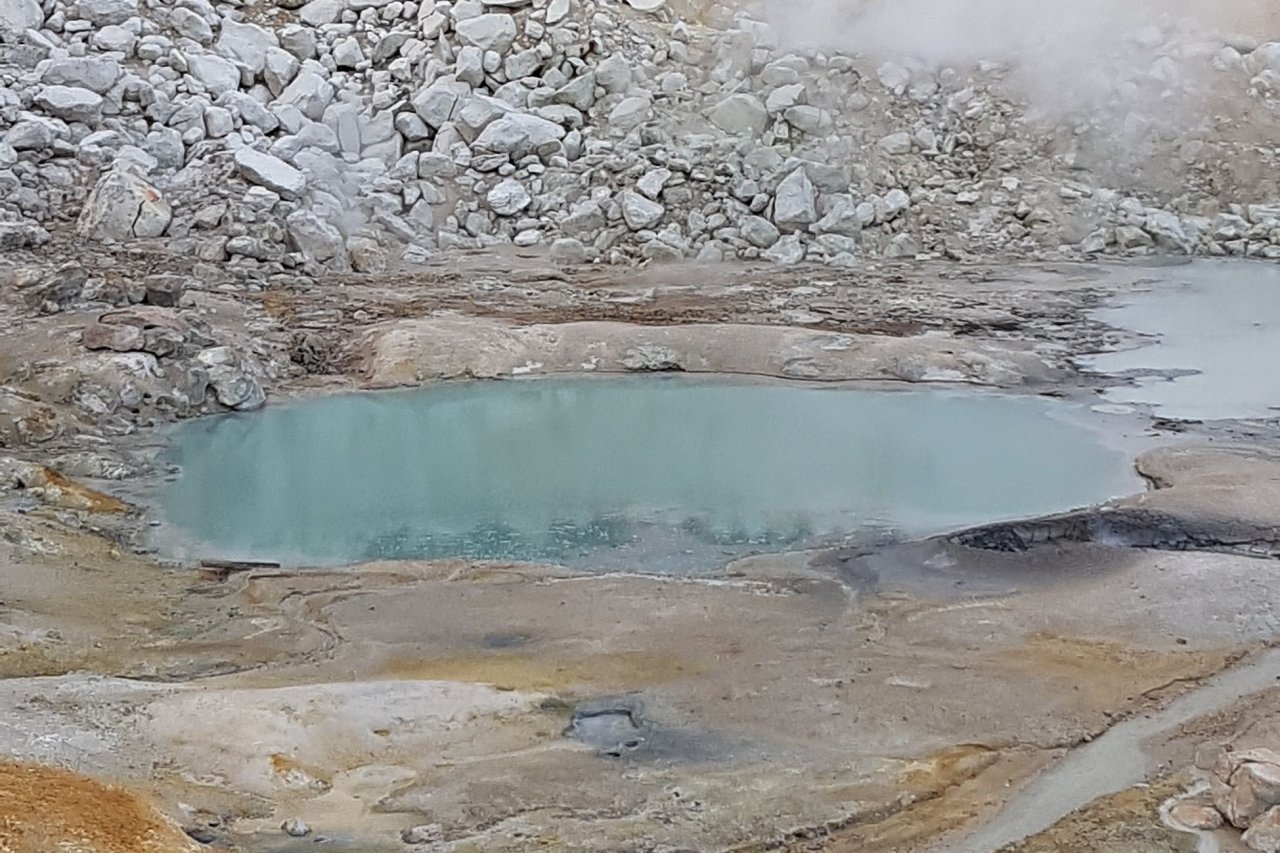Long before there were humans, or hominins, or even single-celled creatures, there must have been something that sparked life on Earth and became everything we see around us today. On that much, scientists agree—but how precisely life began is far from settled.
A new paper published today in Proceedings of the National Academy of Sciences tries to answer that question with math. It analyzes one of the two leading scenarios: that meteorites streaming in from the solar system deposited the building blocks of RNA, a compound similar to DNA that can both store information and oversee the construction of other molecules.
"Now we have evidence that says not only that this is plausible but that it's probable, so that's pretty exciting," Ben Pearce, lead author on the paper and a doctoral student at McMaster University in Canada, told Newsweek. He admits the question isn't yet settled. "It's definitely another piece of evidence to add to the stacks—it will take a whole wealth of more science to really nail this down."
Pearce and his colleagues modeled what would have happened in so-called warm little ponds on land during Earth's early days. This origin-of-life theory was first proposed by Charles Darwin. The new paper argues that meteorites would have been hitting Earth fairly frequently and carrying large quantities of nucleobases, one of the three types of compounds that make up RNA, into ponds on the planet's surface. Those ponds wouldn't have been stable—they would have shrunk during the dry season, then expanded during the wet season. That cycle first allows chemical compounds to bond to each other while in close proximity, then stirs them up to create new configurations when the pond shrinks again.
But those compounds didn't go unchallenged—ultraviolet radiation from the sun would have destroyed them, and some would have slipped through holes in the soil at the bottom of the ponds. So Pearce and his colleagues balanced the creative potential of warm little ponds with those factors. They argue that after a meteorite struck, RNA could have formed within a few years.
"This isn't happening in a couple ponds," Pearce says the team's calculations show. "This is actually happening in thousands of ponds, so there were thousands of opportunities" for life to begin.
Other scientists aren't yet convinced. "Yeah, that's a possibility, but it's certainly far, far, far from being the only possibility, and it's far, far, far from being true," Jan Amend, a geochemist at the University of Southern California who studies the other main contender, hydrothermal vents, told Newsweek.
Amend says the paper glosses over a few key questions. In particular: assuming that RNA must have been the first step to life, that water would have seriously impeded large compounds from forming, and that two other key ingredients of RNA not brought in on meteorites would have been plentiful. "But I love the paper anyway," Amend added. "It will certainly cause lots of people to think about it and argue and discuss."
According to Amend and like-minded colleagues, hydrothermal vents on the seafloor, where chemicals and negatively charged particles seep into warm saltwater, are the most likely place for life to have begun. That theory is in part inspired by the fact that all living cells use similar chemical gradients.
For Michael Russell, one of the scientists behind the original hydrothermal vent hypothesis and a geochemist at NASA, the new study isn't convincing because it neglects to consider energy. Scientists have already shown that hydrothermal vents can create life while obeying the laws of thermodynamics. "RNA world assumes life is about information, but that's like saying I can take the engine out of my hybrid car and assume it will still go, run by the computer!" Russell wrote in an email.
Scientists on both sides say that the purpose of the research isn't just to learn more about Earth: The debate about how life started could have implications for finding life on other planets as well. Meteorites likely hit planets that may boast liquid water all throughout the galaxy, proponent Pearce argues—and much of the excitement about looking for life on Saturn's moon Enceladus relies on its own hydrothermal vents, retorts Russell.


















